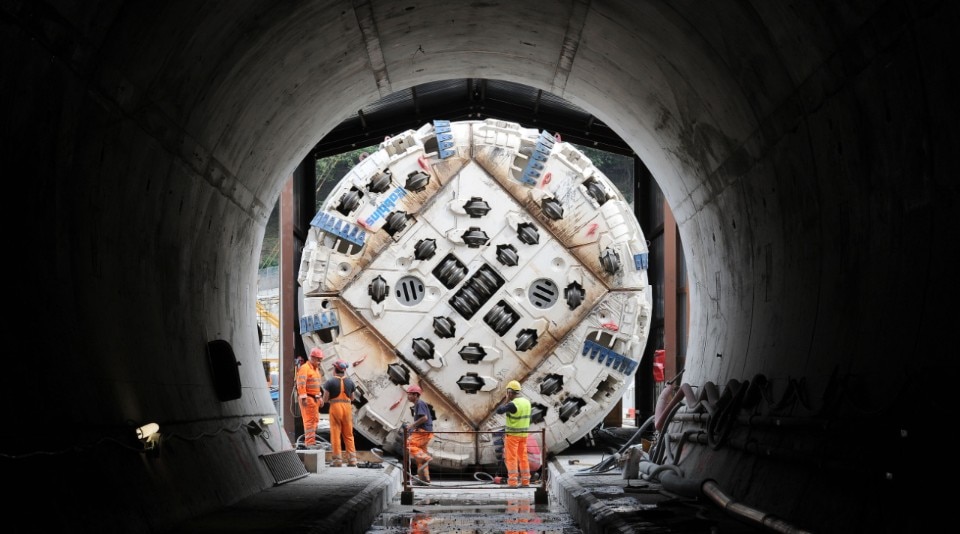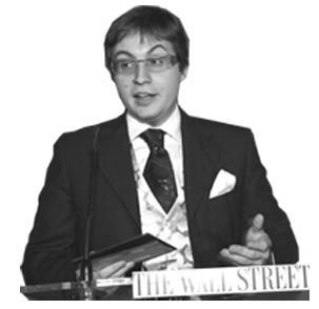The new train line connecting Turin and Lyon, which would run alongside the standard rail connection between the two cities, is an infrastructure project designed to transport goods and passengers via high-speed train (treno ad alta velocità in Italian, giving the acronym TAV). The proposed line, 235 km long, has been controversial for years. Those living in the Susa Valley have protested from the start against the tunnel, which would run for 57 km through their mountains, objecting in particular to the environmental risks of the excavation. The work was planned in the 1990s and since the turn of the millennium has been the focus of heated argument.
In the past, the “no TAV” movement used the language of the left-wing protest group. Environmentalism, hostility to globalisation and the conviction, more or less explicit, that large-scale works hid large-scale commercial interests formed its ideological glue. In contrast, the left-wing in government, at both local and national level, was strongly in favour of the new link, seeing it as an important project that would increase trade with France and foster a common European identity.
The different sides in this longstanding debate have such deeply rooted ideas that no “technical” evaluation will produce agreement.
Like some other extreme fringes of the Italian left, over time those opposing the TAV severed the connections that traditionally bound them to the Democratic Party and helped construct an alternative vehicle – the Five Star Movement. By giving a home to malcontents and rebels from all sides, by 2017 this had developed into the leading force in Italian politics, with the support of 30% of the electorate.
It is for these reasons that the TAV today has such an important symbolic value for the party founded by Beppe Grillo: it is an old fight, but one – now they are in government – they could win.

But the Five Star Movement governs in coalition with the League. Although, under Matteo Salvini’s leadership, the League has broadened out its focus, its hardcore support remains concentrated in northern Italy, and is mostly made up of small entrepreneurs and private sector workers, who support the idea of the TAV. The arrangement between the two coalition partners is governed by a “contract”, one unusual in its form and content, which represents an attempt to reconcile different demands and different voting blocs.
For infrastructure, they chose a somewhat eccentric method, at least for this government: the cost-benefit analysis, which aims to deploy tools to evaluate a project’s precise advantages and disadvantages. But cost-benefit analyses are not handed down on tablets of stone. Like anything else created by humans, they are not independent of their makers: the results can change depending on the assumptions made at the start. So it is no surprise that the findings have been controversial: the different sides in this longstanding debate have such deeply rooted ideas that no “technical” evaluation will produce agreement.
Whether or not the TAV goes ahead depends in all probability on the political balance of the government. But it is likely that the debate will leave a deep mark.
But the controversy has taken a surprising turn. “Populists” are typically those who emphasise the primacy of politics, leaving barely any space to technical expertise. This was how it was with the 2019 budget, in which the government inserted two provisions – one relating to early retirement and a second to a universal basic income – which will have a more than controversial effect on the public finances. The reversal of welfare reforms, in particular, has been opposed by almost all experts in the field.
Populism, after all, is not a system of ideas, much less a set of coordinated, coherent proposals. It is a “style”, a way of thinking about politics that draws its strength from a demand for immediate action – the idea that political decisions should follow rapidly on from popular opinion.
The nationalists have dusted off the old idol of popular sovereignty and used it against anyone or anything interposed between the people and what they want – whether European institutions, independent authorities, cumbersome parliamentary procedures, even the impersonal forces of economics. It is this approach, this “style”, that unites populists of the left and the right, allowing them to govern in Italy together, with the support of the broad majority of the country.
This time it has been the “anti-populists” who have combined personal attacks on members of the commission, starting with its president, Marco Ponti, with the demand that decisions of such importance should not be left to the mere verdict of “experts”. The cost-benefit analysis, its methods and content, has been ridiculed in the press. The establishment approach can be summed up in a slogan seemingly designed for social media: if Garibaldi had waited for a cost-benefit analysis, he would never have attempted the conquest of Sicily.
Very little has been said about the substance of the project: how and why the TAV would lower the cost of transport between Italy and France; what its expected benefits would be; and how it would feasibly impact economic growth. Serious arguments deserving of attention have remained restricted to a few specialists – they have not formed part of the public debate. In contrast, the rhetoric in favour of infrastructure is always the same: regardless of anything else, it will “serve” – perhaps above all – to develop connections and create jobs. The populist demand for immediate action has been countered with an equally simple message. The economic utopianism of those who think that the universal basic income will “restart consumption” and so – via the magic “multiplier effect” – boost manufacturing and the Italian economy has met another promise of a miracle.
Whether or not the TAV goes ahead depends in all probability on the political balance of the government. But it is likely that the debate will leave a deep mark. The political classes should not fool themselves: the populists have become true professionals at the game. On the other hand, there has been a hardening of the suspicion that those who use words such as competence and seriousness do so in reality to benefit their own political tribe, not because they desire a politics that is any less tribal.
Alberto Mingardi (Milano, 1981) is Director of Istituto Bruno Leoni.


